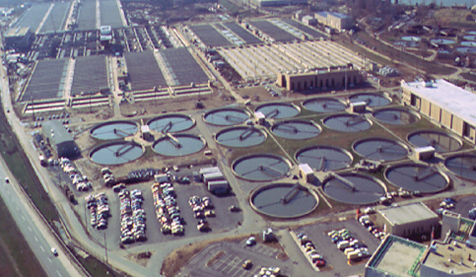In December 2016 a Virginia Circuit Court upheld the regulations that control the application of biosolids on Virginia’s farms and determined they protect the environment and public health. A month earlier, in November, in the City of Los Angeles v. Kern County, a California Superior Court judge ruled in its statement of decision that biosolids do not pose any risk to the residents of a nearby county.
The December 7, 2016 decision by Presiding Judge Joi J. Taylor dismissed all challenges to the state’s biosolids regulations that were contained in a 2013 suit filed by The Potomac Riverkeeper, Inc. and The Shenandoah Riverkeeper.
Biosolids are the nutrient-rich organic materials resulting from the additional treatment of sewage sludge in a resource recovery municipal treatment plant. During treatment, beneficial bacteria and other tiny organisms break the sludge down into simpler, harmless organic matter, which can then be safely recycled as a fertilizer and soil conditioner.
Named as respondents in the suit were The Commonwealth of Virginia, the State Water Control Board, which had approved substantial amendments to the biosolids regulations in 2008, and the Virginia Department of Environmental Quality (DEQ), which administers the biosolids program.
Opposing the suit and joining the Commonwealth as intervenor-respondents were the Virginia Association of Municipal Wastewater Agencies (VAMWA), Virginia Biosolids Council (VBC), Virginia Farm Bureau Federation and the Virginia Agribusiness Council. VAMWA and VBC were represented by Chris Pomeroy of AquaLaw. The Farm Bureau and Agribusiness Council were represented by Harry M. “Pete” Johnson of Hunton & Williams.
In dismissing the suit, Judge Taylor cited Virginia’s decades-long history of successfully regulating biosolids to ensure the environment protection and public health and safety. Also cited were the conclusions of the Expert Panel on Biosolids, which was created by the 2007 General Assembly to answer a series of questions relating to biosolids, health, and the environment. The Panel said that during its 18-month study it had “uncovered no evidence or literature verifying a causal link between biosolids and illness.”
The Panel’s members included physicians, public health educators, university researchers, sanitation professionals, environmental and public health officials, and private citizens.
A month earlier, in November 2016, in the City of Los Angeles v. Kern County, a case that is believed to be the first trial focused on the benefits and safety of recycling biosolids to farmland, a practice used by many of Virginia’s largest cities, a California Superior Court judge ruled in its statement of decision that “the overwhelming weight of the evidence is that there is no basis in fact for any determination that land application of biosolids poses any risk to Kern County (California) residents, let alone a real and substantial risk that would be alleviated by banning such land application. … There is no evidence of risk to human health.”
Biosolids will always have its detractors, however, it’s important that strong science be the foundation for its use. This sound science has been verified recently in two separate and distinct legal court cases.
